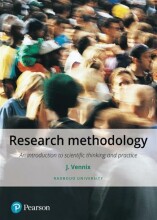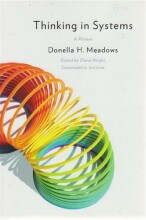Stakeholder theory - Political perspective
6 important questions on Stakeholder theory - Political perspective
Elaborate on the political perspective in terms of what it is
This new perspective on the role of organizations in society re-evaluates the role of organizations in society, capturing political activities of non-state actors due to global governance gaps (regulatory gaps).
The outcome of the political perspective is a deliberate democracy.
To capture this gap, this perspective focuses on the interaction between corporation and NGO's: multi-level stakeholder approach. Its focused on the democratic embeddedness of organizations.
What is the critique of the political perspective on the problem of ethical perspectives (utilitarianism, deontology and virtue ethics)?
The problem of the ethical perspectives is that it is monological: you take yourself outside of the social world to value a certain behavior.
Discursive deficit; you cannot value behavior monological in a world of pluralism values and cultures. Therefore, a discursive process is needed in which people are supposed to accept the norms are involved.
Pragmatic defict; the connection between management theory and moral philosophy lacks critical analysis of society and its democratic institutions. Justification of normative principles not in philosophy but in democratic procedures.
What is the basic assumption of the political perspective?
- Higher grades + faster learning
- Never study anything twice
- 100% sure, 100% understanding
What is the connection of the political perspective with the model of Achterberg and Vriens?
Conclusion: requirements for a new (political) perspective:
2. A priority of democracy over philosophy
In which its impossible to use universal philosophy rules, because democracy is pluralistic.
3. Normative theory; for the orientation of increasingly political activities of companies.
4. Discursive perspective
Solve normative conflicts and establish legitimacy under conditions of cultural diversity.
Ideal discourse of all stakeholders; interests and arguments should come into play regardless of the actor's base of power.
What is the aim of the political perspective; deliberate democracy? An how do the authors want to make this possible?
- The market base competitive economy (the current situation of the market)
- To reach efficiency advantages
Via controlling price system for social coordination.
This is on the field level; so between organizations.
- The market must not be isolated from democratic control and not have processes of self-control
- Political decision making process based on dialogue
- Political co-responsibility --> slow change
The question on the page originate from the summary of the following study material:
- A unique study and practice tool
- Never study anything twice again
- Get the grades you hope for
- 100% sure, 100% understanding
































